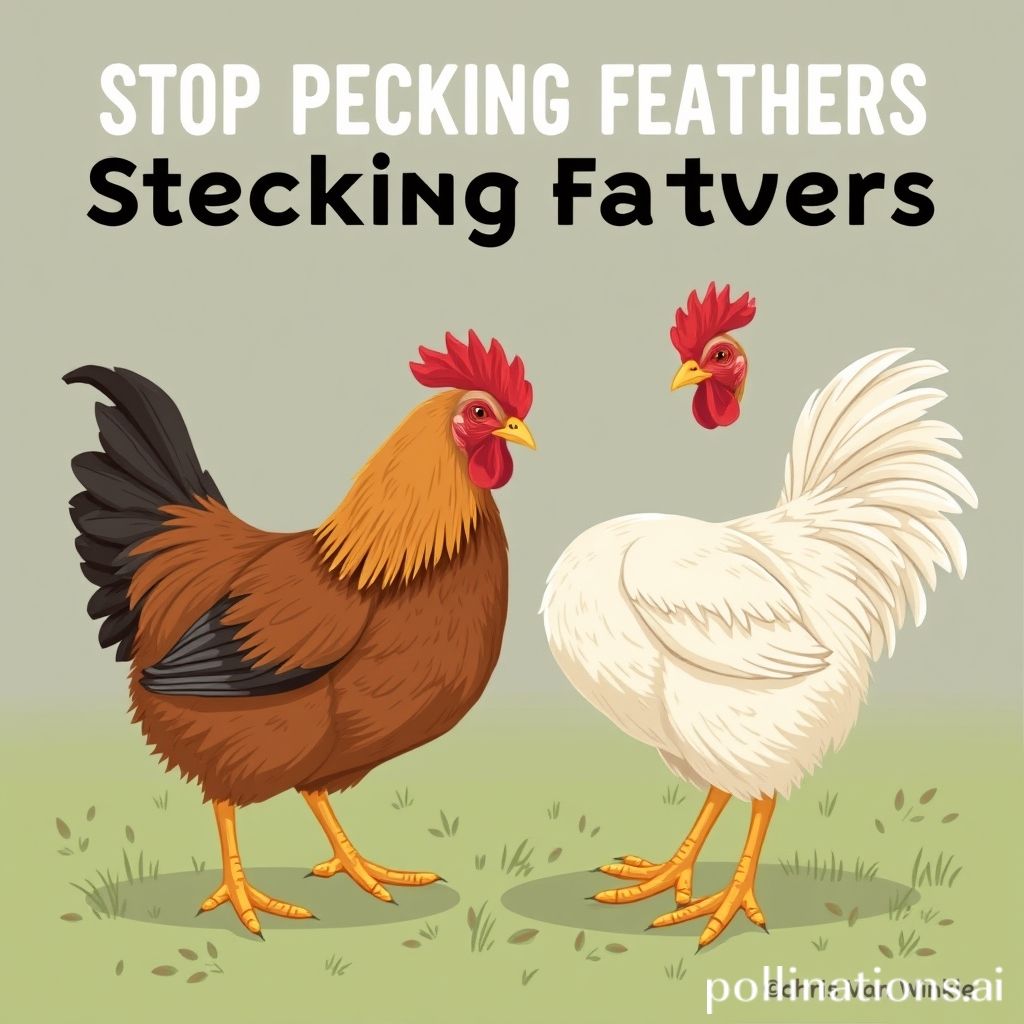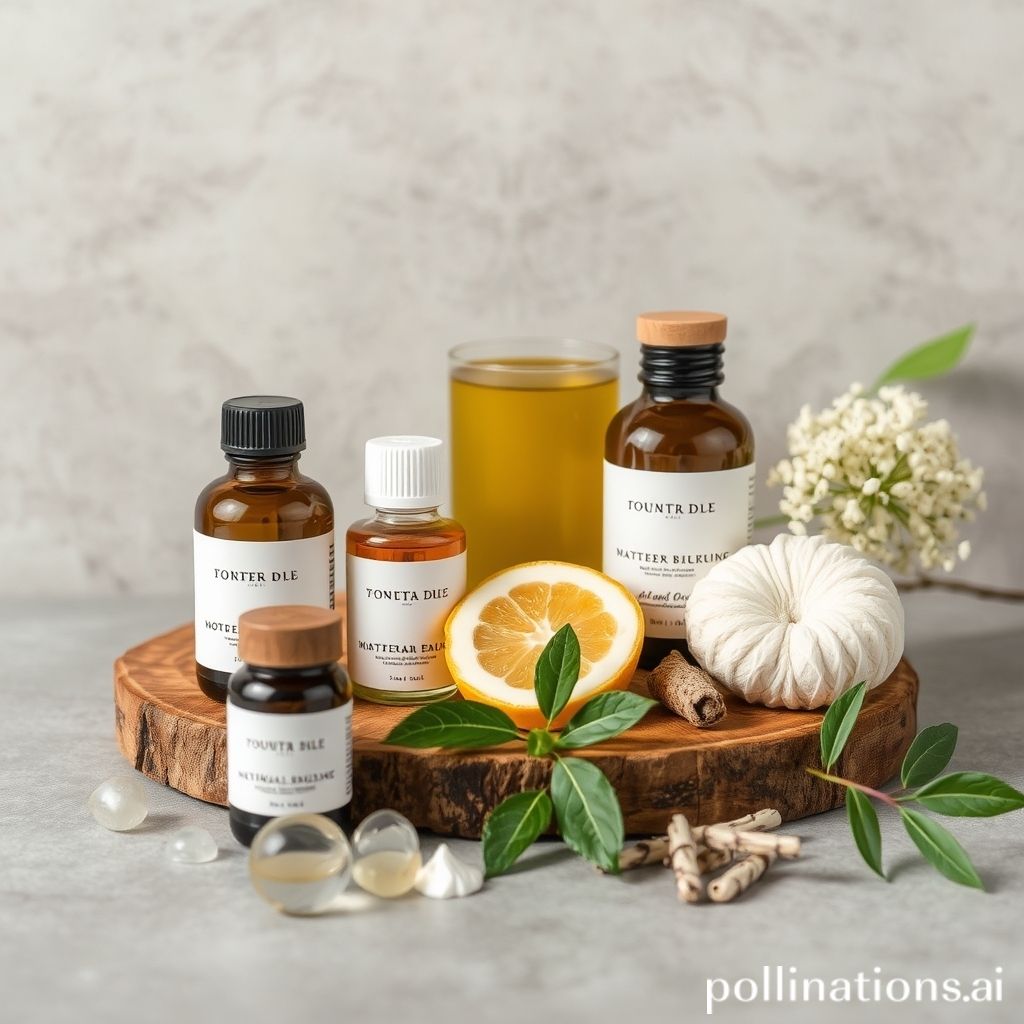Feather pecking in chickens can be a distressing behavior that not only affects the appearance of your flock but also poses potential health risks. If you’ve noticed your chickens engaging in this behavior, it’s essential to intervene and find effective ways to stop them from pecking each other’s feathers out.
Feather pecking can lead to open wounds, infections, and stress among your birds. Fortunately, there are proven strategies and methods you can implement to address this issue and ensure a harmonious and feather-intact flock. In this guide, we will explore various techniques and tips that will help you put an end to feather pecking and maintain a peaceful and healthy chicken community.
KEBONNIXS Automatic Chicken Cup Waterer and Port Feeder
Provide Fresh Water and Feed for Your Chickens Effortlessly
Embracing the reasons behind feather pecking
Feather pecking is a common behavior in chickens that can have negative impacts on their health and social dynamics. By Embracing the underlying reasons for this behavior, chicken owners can effectively prevent and manage feather pecking.
1. Social hierarchy and pecking order
Chickens naturally establish a social hierarchy within their flock. This pecking order helps maintain order and reduce aggression. Nevertheless, sometimes feather pecking occurs as a result of dominance battles or the need to establish social ranks. Higher-ranking chickens may peck at lower-ranking ones, causing damage or loss of feathers.
2. Boredom and lack of environmental enrichment
Chickens are curious and active animals that require mental stimulation and a stimulating environment. When they are confined to small or barren spaces with limited opportunities for exploration and engagement, they may become bored and resort to feather pecking as a form of entertainment or frustration release. Providing a stimulating environment with perches, dust baths, and objects for pecking can help reduce boredom and feather pecking incidents.
3. Nutritional deficiencies
Improper nutrition can also contribute to feather pecking behavior in chickens. A lack of essential nutrients, such as protein, vitamins, or minerals, can lead to nutritional deficiencies, which may cause feather abnormalities or irritations. Chickens may peck at each other’s feathers in an attempt to obtain the missing nutrients. Ensuring a balanced and varied diet for chickens, including quality feeds and appropriate supplements, can help address nutritional deficiencies and reduce feather pecking.
To prevent chickens from pecking each other’s feathers, it is important to address the root causes of this behavior. Establishing a harmonious social hierarchy, providing adequate environmental enrichment, and ensuring proper nutrition are key steps in preventing feather pecking within a chicken flock. By Embracing these causes and taking proactive measures, chicken owners can create a healthier and more peaceful environment for their feathered friends.

Implementing preventive measures
Feather pecking among chickens can result in serious injuries and stress within the flock. To ensure the well-being of your chickens and prevent this behavior, it is essential to implement effective preventive measures. Here are some strategies to stop chickens from pecking each other’s feathers:
1. Providing enough space and housing
Overcrowding is one of the main reasons for feather pecking. Make sure your chickens have sufficient space in their coop or run. Provide at least 4 square feet of indoor space and 10 square feet of outdoor space per chicken. Also, ensure that the housing is well-ventilated and free from any sharp edges or protruding objects that could cause injuries.
2. Ensuring a well-rounded diet
Nutritional deficiencies can often contribute to feather pecking. Ensure that your chickens receive a balanced diet that includes all the necessary vitamins, minerals, and proteins. Provide them with high-quality commercial chicken feed and supplement it with fresh fruits, vegetables, and protein sources like mealworms. This will help maintain their feather health and reduce the likelihood of pecking.
3. Enriching the environment with toys and distractions
Boredom can also play a role in feather pecking behavior. Keep your chickens engaged and entertained by providing them with toys and distractions. Hang a cabbage or a seed-filled piñata for them to peck at, or scatter food around the coop to encourage foraging. This will not only redirect their attention from pecking each other’s feathers but also promote mental stimulation.
| Preventive Measures | Benefits |
|---|---|
| Providing enough space and housing | – Reduces stress and aggression – Minimizes the risk of injuries |
| Ensuring a well-rounded diet | – Improves feather health – Reduces nutritional deficiencies |
| Enriching the environment with toys and distractions | – Prevents boredom and feather pecking behavior – Promotes mental stimulation |
Using Natural Remedies to Prevent Feather Pecking in Chickens
Aloe Vera and Lavender Spray
Feather pecking can be distressing for chickens, but incorporating natural remedies can help address this issue. One effective solution is a homemade spray made with aloe vera and lavender. The soothing properties of aloe vera, combined with the calming effects of lavender, can help reduce stress and minimize aggressive behavior in chickens.
To make the spray, mix equal parts of fresh aloe vera gel and lavender essential oil in a spray bottle. Shake well before use. Spray the mixture onto the affected chickens’ feathers and the surrounding area. The pleasant scent of lavender can create a more peaceful environment, discouraging pecking behavior.
Apple Cider Vinegar in Drinking Water
Another natural remedy that can help prevent feather pecking is adding apple cider vinegar to the chickens’ drinking water. Apple cider vinegar has numerous health benefits, including improving digestion and boosting the immune system. Adding 1-2 tablespoons of raw, unfiltered apple cider vinegar to a gallon of water can help maintain the chickens’ overall well-being and reduce aggressive behavior towards other flock members.
Dust Baths with Diatomaceous Earth
Chickens naturally take dust baths to keep their feathers clean and free from pests. Adding diatomaceous earth to their dust bath can enhance its benefits. Diatomaceous earth is a natural powder made from fossilized aquatic organisms. It is effective in controlling external parasites and can deter chickens from pecking at each other’s feathers.
To create a dust bath area, choose a dry and sunny spot in the chicken coop or run. Mix diatomaceous earth with sand or soil in a shallow container. Chickens will naturally roll in the dust bath, coating their feathers with the diatomaceous earth, which helps keep mites and lice away and reduces the likelihood of feather pecking.

Using Behavioral Modification Techniques
1. Diverting Attention with Treats or Toys
To prevent chickens from pecking each other’s feathers out, divert their attention with treats or toys. Engaging activities can redirect their focus and reduce aggressive behavior. Try these techniques:
- Provide puzzle toys or hanging treats that require pecking or manipulation.
- Offer a variety of treats, such as mealworms or corn, to maintain interest.
- Regularly rotate toys and treats to keep them novel.
2. Reducing Stress through Calming Techniques
Stress can trigger feather pecking in chickens. Create a more relaxed environment and minimize aggression by implementing calming techniques. Consider these strategies:
- Ensure a spacious and well-ventilated coop with sufficient lighting.
- Provide access to dust baths, which naturally reduce stress in chickens.
- Introduce soothing sounds like classical music or nature sounds to create a calm atmosphere.
3. Training Chickens to Peck at Designated Objects
Train chickens to direct their pecking behavior towards designated objects to prevent them from targeting other chickens’ feathers. This redirection technique can effectively reduce aggression within the flock. Follow these steps:
- Introduce a specific object, such as a pecking block or hanging toy, that is safe for chickens to peck.
- Encourage chickens to investigate and peck at the designated object by placing treats or food nearby.
- Reward chickens consistently when they peck at the designated object, reinforcing the behavior.
- Monitor and redirect any aggressive pecking towards other chickens, gently guiding them back to the designated object.
By using these behavioral modification techniques, you can effectively address feather pecking among chickens. Keep a close eye on your flock and make necessary adjustments to ensure their well-being and harmony.
Seeking Guidance from a Vet or Poultry Specialist
It is important to consult with a veterinarian or poultry expert when dealing with severe cases of chickens pecking each other’s feathers. These professionals have the knowledge and experience to offer appropriate guidance and intervention.
1. Seeking Professional Advice for Severe Cases
If feather pecking becomes a severe problem in your flock, it is recommended to seek professional advice. A veterinarian or poultry expert can assess the situation, identify the underlying causes, and suggest specific solutions tailored to your flock’s needs.
2. Evaluating Possible Health Issues
Chickens may engage in feather pecking due to underlying health issues or deficiencies. Consulting a professional will help evaluate the overall health of your flock and identify any potential problems that may contribute to this behavior. This evaluation may involve examining the diet, identifying nutritional deficiencies, or checking for any infections or parasites.
3. Considering Additional Interventions or Medications
In certain cases, additional interventions or medications may be necessary to address feather pecking. A veterinarian or poultry expert can recommend suitable measures, such as applying anti-pecking sprays or using deterrent devices. They may also prescribe medications or supplements to address any underlying health issues that contribute to this behavior.
Conclusion
Addressing feather pecking in chickens is crucial for their well-being and overall health. By Assimilating the causes and consequences of this behavior, we can take proactive steps to prevent it.
Implementing preventative measures, such as providing enrichment, creating a suitable environment, and ensuring a balanced diet, can help minimize feather pecking incidents. Additionally, seeking professional guidance from veterinarians or poultry experts can offer valuable insights and tailored solutions to effectively manage this issue. Together, we can ensure that our feathered friends lead happy and stress-free lives.
Frequently Asked Questions (FAQ) about Feather Pecking in Chickens
FAQ 1: How long does it take for chickens to stop feather pecking?
Feather pecking cessation varies depending on various factors such as the underlying cause, intervention methods, and individual chicken behavior. In some cases, chickens may stop feather pecking within a few days or weeks after implementing appropriate measures. Nonetheless, it can take several weeks or even months for feather pecking behavior to completely cease in certain instances.FAQ 2: Can feather pecking lead to serious injuries?
Yes, feather pecking can potentially lead to serious injuries in chickens. Continuous pecking can result in skin damage, bleeding, and even open wounds. If left untreated, these injuries can become infected, leading to further complications and potential health issues for the affected birds.FAQ 3: Are there any specific breeds more prone to feather pecking?
Feather pecking can occur in any chicken breed, but certain breeds may be more prone to this behavior than others. Factors such as genetics, rearing conditions, and environmental stressors can influence the likelihood of feather pecking. It is recommended to research and select chicken breeds known for their docile temperament and lower tendency for feather pecking if this behavior is a concern.FAQ 4: Can I use commercial anti-peck sprays?
Yes, commercial anti-peck sprays can be used as a deterrent for feather pecking in chickens. These sprays typically contain a bitter taste or odor that discourages pecking behavior. Nonetheless, it is important to follow the instructions provided by the manufacturer and ensure the spray is safe for use on chickens.FAQ 5: What should I do if the feather pecking behavior persists despite interventions?
If feather pecking behavior persists despite interventions, it is recommended to reassess the situation and consider additional measures. Some possible steps include providing more enrichment in the form of toys or natural materials, increasing space or ventilation in the coop, ensuring a balanced diet, and monitoring for any signs of stress or aggression within the flock. Consulting with a poultry veterinarian or an experienced chicken keeper can also provide further guidance and assistance in managing feather pecking issues.Read Similar Post:
1. How Far Do Chickens Roam?
2. How Often To Deworm Chickens?

